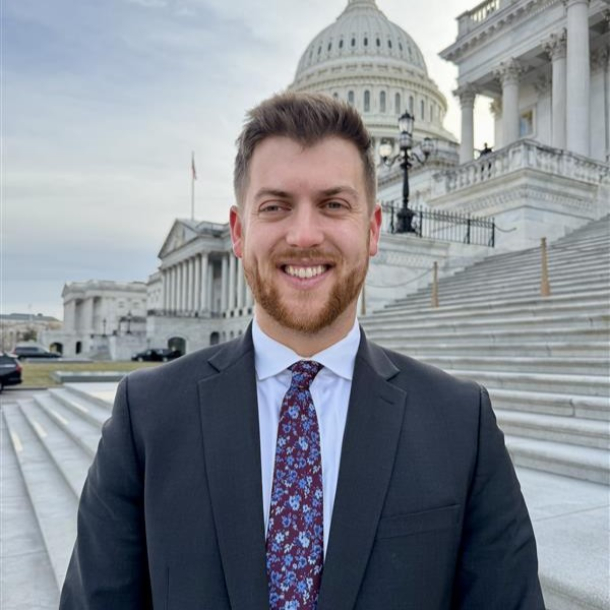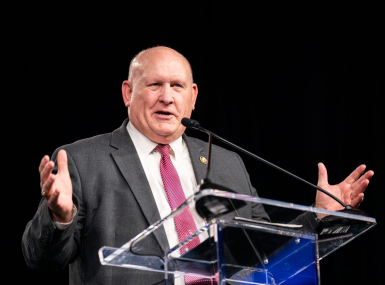Maintain Funding for USDA Rural Development Programs

Author

Owen Hart
Upcoming Events
Related News
ACTION NEEDED:
Urge your members of Congress to support U.S. Department of Agriculture Rural Development (USDA-RD) programs throughout the FY 2026 appropriations process by meeting or exceeding FY 2024/2025 funding levels. USDA-RD programs empower counties to make critical investments in rural communities.
BACKGROUND:
USDA programs are funded through the annual Agriculture, Rural Development, Food and Drug Administration, and Related Agencies (Ag-FDA) appropriations bill. USDA-RD operates a broad range of programs vital to rural counties and the communities we serve. These programs include grant funding and loan financing for water/wastewater infrastructure, community facilities, broadband and telecommunications deployment, housing, energy and business development.
In March 2025, Congress extended the FY 2024 funding levels through FY 2025 with a continuing resolution that included $22.3 billion in total discretionary funding authority for USDA, $383 million below FY 2023 funding levels. These reduced funding levels include steep cuts to USDA-RD programs vital to county governments and residents.
As Congress continues to work toward passing a federal budget, counties encourage Congress to return funding for USDA-RD programs to FY 2023 levels as it considers appropriations for FY 2026.
RURAL DEVELOPMENT PROGRAMS:
Below is a breakdown of FY 2024 funding levels for Rural Development
Programs:
Under the USDA Rural Utilities Service (RUS):
- Water and Waste Disposal Loan and Grant Programs: $1.51 billion in funding for the Water and Waste Disposal Program – a $560 million, or 27.1 percent, reduction from FY 2023 levels. This program awards loans and grants to rural communities address the backlog of clean water and waste disposal projects.
- Rural Broadband: $90 million for the Rural e-Connectivity (ReConnect) Program, $258 million below FY2023 levels. $40 million in funding for the Distance Learning, Telemedicine and Broadband Program, $20 million below FY 2023 funding levels. These programs help extend internet access to underserved rural communities. Rural broadband programs received cuts due to the implementation of the Broadband Equity Access and Deployment (BEAD) Program, which provides $42.45 billion to expand high-speed internet access in underserved areas.
Under the USDA Rural Housing Service (RHS):
- Rural Community Facilities Program: $2.8 billion in direct and guaranteed loans for the Rural Community Facilities Program, equal to FY 2023 funding levels. This program helps fund rural hospitals, schools, and health clinics.
- Rural Housing Loan and Rental Assistance Programs: $28.1 billion for Rural Housing Rental Assistance Programs, $5.26 billion below FY 2023 funding levels. These programs help provide affordable housing to low-income and elderly households in rural communities.
Under the USDA Rural Business-Cooperative Service (RBCS):
- Rural Business Development Program: $66.62 million for the Rural Business Development Grant Program, $19.9 million below FY 2023 funding levels; and $24.3 million for Rural Cooperative Development Grants. These programs support rural entrepreneurs and help rural communities create and expand new market opportunities through strategic investments.
KEY TALKING POINTS:
- USDA Rural Development operates a broad range of programs tailored to address the specific needs of rural counties and communities. These programs provide grant funding and loan financing for water/wastewater infrastructure, community facilities, broadband, and telecommunications, housing, renewable energy and business development.
- Urge your member of Congress to invest in rural America to return FY 2026 appropriations for U.S. Department of Agriculture Rural Development (USDA-RD) programs to FY 2023 funding levels.
Related News

House Agriculture Committee chairman targets Easter farm bill passage
House Agriculture Chairman G.T. Thompson (R-Pa.): “Let’s face it — the 2018 policy was really great for 2018, but it’s no match for the challenges of 2026.”

California counties fight agricultural crime
Sheriffs' offices and prosecutors in California's central valley make specific efforts to prevent and prosecute crimes against the agricultural community.

House Agriculture Committee introduces 2026 Farm Bill
On February 13, House Agriculture Committee Chairman G.T. Thompson (R-Pa.-15) introduced the House version of the 2026 Farm Bill, the Farm, Food, and National Security Act of 2026.